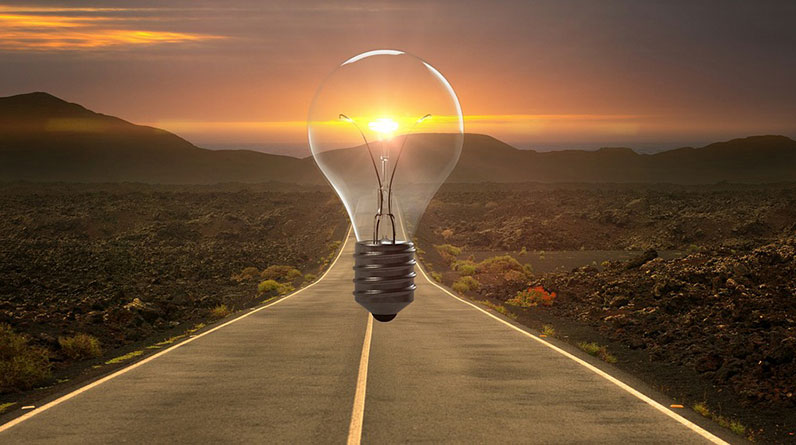
What Exactly are the Benefits of Solar Energy?
Solar energy is abundant, renewable, and emissions-free. It’s also a cost-effective way to reduce your energy bills and protect the environment at the same time. That’s why more and more people are switching from traditional energy sources like natural gas, oil, and coal to solar. In fact, there has been a 600% increase in households and businesses installing solar panels in the last 10 years! Thankfully, switching to solar energy is easier than you think. Here are some of the benefits of making that switch:
Environmentally Friendly
Solar energy is clean and emissions-free, making it an ideal choice for those looking to go green. Solar panels use photovoltaic (PV) technology to convert sunlight into clean, renewable energy that doesn’t produce toxic byproducts.
Solar energy doesn’t produce any greenhouse gas emissions, unlike fossil fuels like natural gas, coal, and oil that produce significant amounts of CO2 when burned. Solar energy also doesn’t require mining, which also causes air and water pollution.
In addition, photovoltaics don’t require water, so they’re an ideal source of energy in areas that are experiencing a water shortage, or where there is a risk of drought.
Substantial Savings
One of the biggest benefits of switching to solar energy is that it can save you money. Solar energy is cost-effective because it doesn’t require any fuel to generate electricity — the sun does all the work.
Plus, the initial investment in solar panels is usually paid off within 5 to 10 years. Installing solar panels for your home or business can reduce your electricity bills by up to 80%. And because you’re generating your own electricity, you also have the option to sell any excess energy back to the grid and earn money.
Since the price of solar panels has dropped significantly in recent years, more and more people are taking advantage of this cost-effective energy source. In fact, the average solar panel installation cost has dropped from $10,000 in 2008 to about $3,000 in current times.
Provides Freedom From Fossil Fuels
As the world works to reduce its carbon footprint, some industries are facing stricter regulations and requirements to reduce their carbon emissions. Switching to solar energy gives you the option to generate electricity without burning fossil fuels like natural gas, oil, or coal.
Solar panels generate steady, predictable energy, which means they don’t have to be retrofitted to include a battery like wind turbines or hydropower. This makes solar energy an ideal choice for those who rely on consistent energy production.
No Loss of Productivity
One of the challenges of generating electricity with renewable energy sources is that they’re not available 24/7. Solar panels generate electricity only when the sun is shining, so they don’t produce any electricity at night or during bad weather.
During cloudy days or when the panels are covered with snow, solar panels aren’t generating electricity, but that doesn’t mean you are without power during those times. You can still rely on your backup power source or battery storage. Since solar panels don’t require fuel to generate electricity, there is no risk of a supply shortage or increased cost.
How to Switch to Solar Energy
Solar energy is rising in popularity, but before you decide to make the switch, you should first do your research to find the best solar panels for your needs. There are many different types of solar panels on the market, and each has its own set of benefits and drawbacks.
Once you’ve chosen the right solar panels, you’ll need to get an energy audit to determine how many panels you’ll need to supply your electricity needs. You can then apply for rooftop solar or ground-mounted solar through your local utility. Some utility companies offer incentives to encourage people to switch to solar energy, so it’s a good idea to check your local regulations for more information.
Solar panels can be installed on your home or business, or you can lease panels through a program offered by your utility. If you lease or install your solar panels, make sure they’re high-quality products that come with a warranty. Solar panels last between 20 and 30 years, but the warranty will tell you how long the manufacturer expects them to last.
Conclusion
Solar energy is a reliable source of clean, renewable energy that can save you money on electricity bills and help protect the environment. Solar panels are durable, reliable, and have a long lifespan, making them an ideal investment for your business.
Although solar energy is a great choice for many situations, it might not be suitable for everyone. If you generate a lot of electricity during the day and don’t use it all, you might want to consider installing an off-grid solar system. For others, however, solar energy is a reliable source of clean, reliable energy that can save you money and protect the environment.
As with any energy source, solar panels are not without their drawbacks. The cost of installing and maintaining a solar energy system can be prohibitive for many consumers. Additionally, solar panels do not work at night or on cloudy days, so they are not an ideal energy source for those who rely on a constant stream of electricity to power medical equipment or keep lights on in the home.
